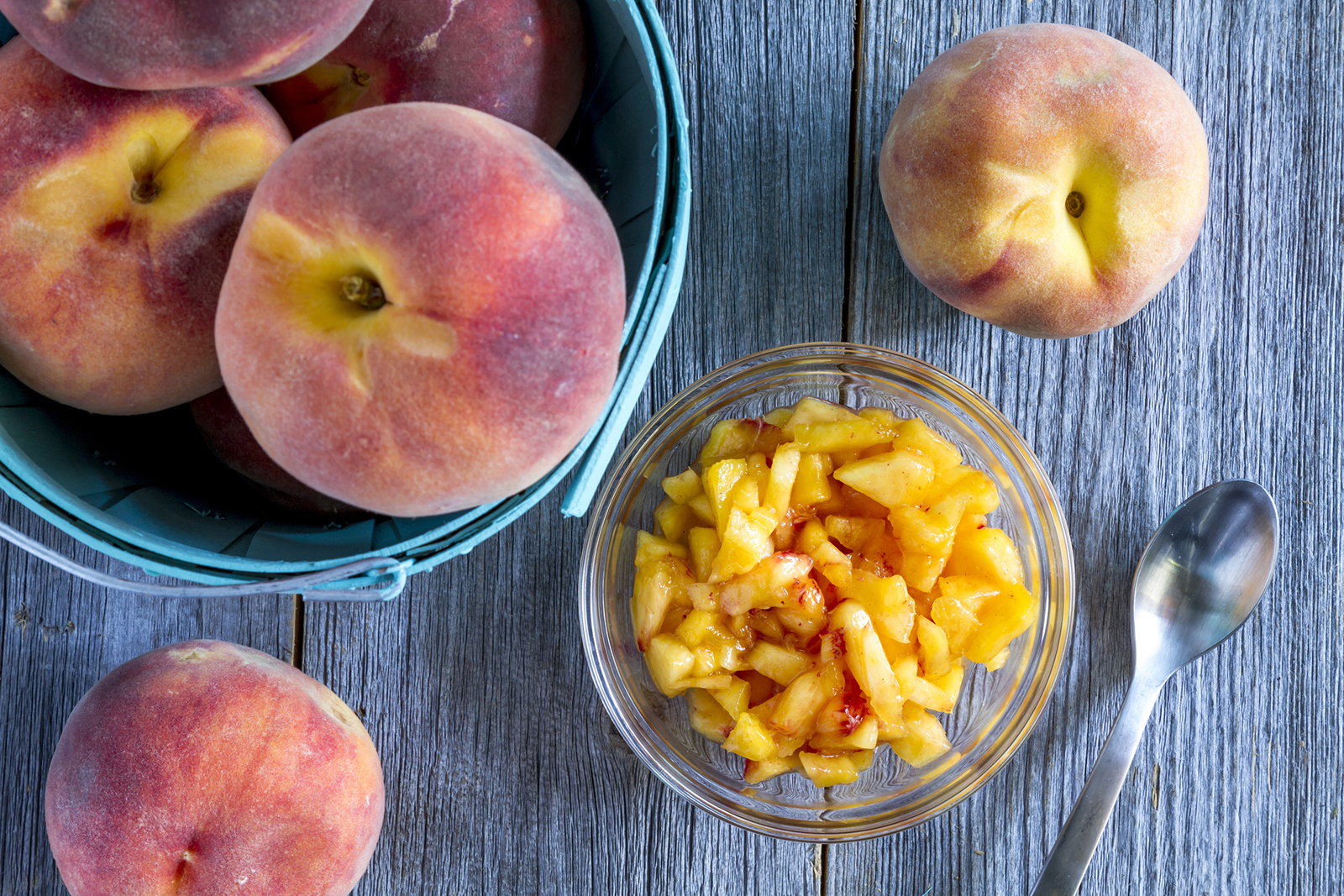
ON NUTRITION: FOR LOVE OF PEACHES
It was truly a trip down memory lane. After more years than I wish had gone by, we revisited the small town in northwest Colorado where—during my college years—I had spent summers on my uncle’s ranch.
Driving through this familiar country was more emotional than I had expected. Although the ranch is no longer in our family, it is still beautiful with sweeping views of the river and nearby mountains.
During our visit, I looked up some old friends who, like me, have added a few years to our resumes. On the day we headed home, we stopped by for a quick visit with a friend I hadn’t seen for 30 years. When we pulled up in her small neighborhood, she waved as she and her dog came to meet us. We both have aged just a bit, but it was clear she is still the precious friend I remember.
After a time of hugs and reminiscing about who and what, it was time for us to say our goodbyes and get back on the road.
Out of the blue, she asked, “Do you like peaches?”
When I nodded that indeed we do, she added, “I just got a big box from Palisade.”
Palisade peaches! These beauties are so noteworthy, they carry the name of the area in which they are grown. Warm days and cool nights around the western Colorado town of Palisade appear to be the perfect climate for producing delicious peaches that are juicier and larger than your typical peach.
My friend “insisted” we take a few home with us. Then she advised, “Don’t waste your time making pie or cobbler with these. All you need is a napkin.”
How right she is. These luscious sweet peaches make an ideal snack and look absolutely fabulous on top of my morning cereal.
Botanically, peaches are “drupes” or stone fruits. Like apricots, plums and cherries, they carry their seeds within a hard shell surrounded by edible flesh and skin.
Nutritionally, a medium-sized peach (5-6 ounces) contains just 58 calories and 14 grams of brain and muscle energy from carbohydrates. They are reasonably good sources of vitamins C and A, with smaller amounts of other vitamins and minerals. Peaches are also packed with beneficial antioxidants that protect our bodies from wear and tear. And get this when you’re searching for peaches: According to research from the National Institutes of Health, you’ll find more antioxidants in the freshest and ripest fruit.
Here’s how to find a perfectly ripe peach. It is round with no sign of green. And it is slightly soft to the touch. Peaches continue to ripen at room temperature. To preserve them from over-ripening, store them in the refrigerator.
©2024 MediaNews Group, Inc. Distributed by Tribune Content Agency, LLC.
2024-09-06T08:05:32Z dg43tfdfdgfd